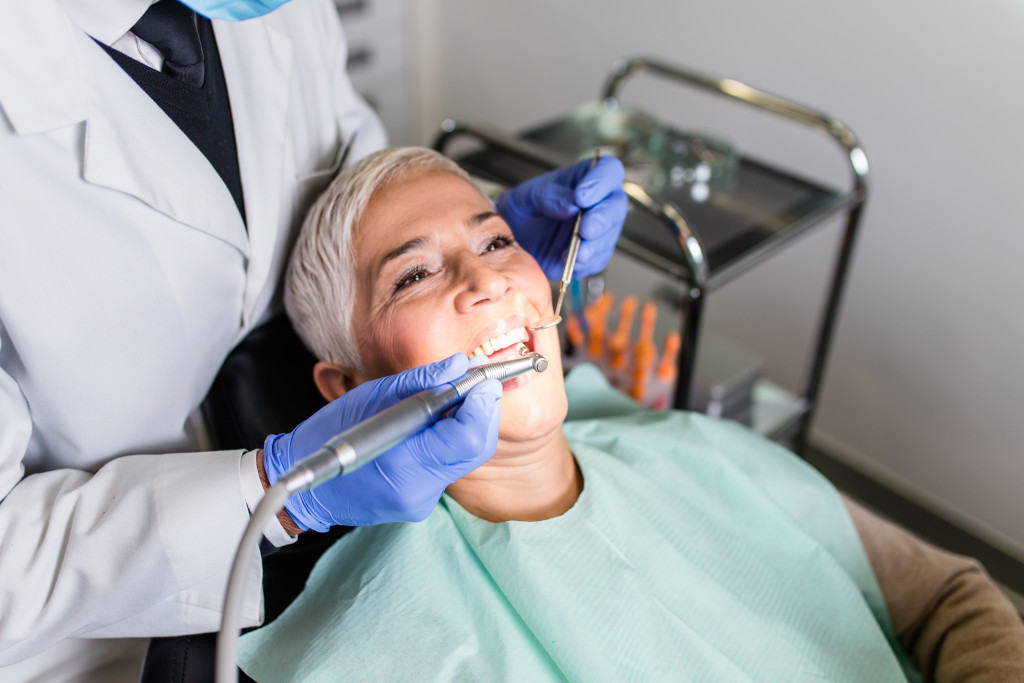Missing teeth are a common problem, with about 30 percent of adults in the United States missing at least one tooth. This number rises to 40-45 percent for those over 65. While there are many reasons why teeth may be missing, the most common is tooth decay.
You can do a few things to reduce your risk of missing teeth:
- Brush your teeth at least twice a day or every time you eat, and floss once a day.
- Visit your dentist for a check-up every six months.
- Avoid sugary drinks and snacks.
All those sugary snacks can lead to tooth decay. Finally, don’t smoke. Smoking is one of the leading causes of tooth loss.
However, accidents and injuries can still happen, and you may miss a tooth. Studies show that accidents can increase the risk of missing teeth, and it happens to about five million people a year. If you do end up losing a tooth, don’t panic. There are many options available to replace missing teeth, and your dentist can help you find the best one for you.
Reattach Tooth
If your tooth gets knocked out, you may be able to reattach it. First, find the tooth and pick it up by the crown, careful not to touch the root. If dirt or debris is on the tooth, gently rinse it with water. Do not scrub it or use any soap.
Once you have rinsed the tooth off, try to reinsert it into the socket. If that is not possible, put the tooth in a cup of milk or water.
You should then see your dentist as soon as possible. The sooner you get to the dentist, the better your chances are of saving the tooth. It might be possible to reattach the tooth if you get to the dentist within an hour of losing it.
Extraction

If you can’t reattach the tooth or you don’t have a tooth to reattach, your dentist will likely recommend extraction. This is a simple procedure done in your dentist’s office. First, your dentist will numb the area around the tooth. Then, using an elevator tool, your dentist will loosen the tooth and pull it out.
You may feel some pressure during this process, but you should not feel any pain. After the extraction, your dentist will likely give instructions on caring for the area and what to expect during recovery.
Recovery from an extraction is usually pretty simple. You may have some swelling and bruising around the extraction site, but this should go away within a few days. You may also have pain and discomfort, which you can manage with over-the-counter pain medication.
Replacement
Once your tooth has been extracted, you will need to replace it. The best option for replacement will depend on several factors, including where the tooth is located and how many teeth are missing. Your dentist can help you figure out the best option for you.
One standard option is a dental implant. This is a metal post inserted into your jawbone. Once the position has healed, an artificial tooth (crown) is attached to the base. Implant dentistry procedures will add a tooth that looks and functions like your natural teeth.
Another option is a dental bridge. This artificial tooth is held in place by two crowns on either side. The advantage of a dental bridge is that you can do it without surgery. However, the downside is that it requires healthy teeth to get crowned.
A third option is a partial denture. The removable dental appliance can replace one or more missing teeth. Partial dentures are usually made of plastic and metal and fit snugly over your remaining teeth.
Recovery
After you have received your replacement tooth, it is essential to take care of it. Your new tooth will not be as strong as your natural tooth, so you must be careful. Be sure to brush and floss regularly and see your dentist for check-ups. Hard and sticky foods can damage your new tooth, so avoid them if possible.
Dentists will usually give specific instructions on how to care for your new tooth. Be sure to follow these instructions carefully to ensure a successful recovery. Your jawbone’s health will also affect the success of your new tooth, so be sure to take care of that as well.
Final Thoughts
Losing a tooth can be daunting, but many options are available to replace missing teeth. The rest of your teeth will be fine if you take care of them, so don’t let one missing tooth ruin your smile. Talk to your dentist about what options are available to you and choose the best one for your situation. With proper care, your new tooth should last you a lifetime.
